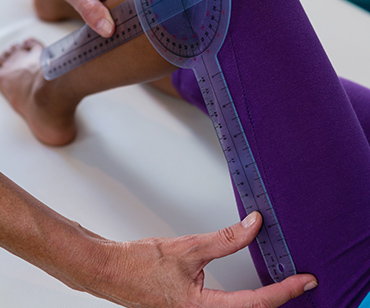
Physiotherapy
Pediatric physiotherapists treat many acute and chronic conditions for babies and children up to 18 years of age. They assess, diagnose and treat perinatal, developmental, neurological, cardiorespiratory and orthopedic conditions of many types.
Interventions (treatments) focus on movement and functional gains in order to increase the child’s quality of life and participation in activities.

Conditions Treated
Physiotherapy can help kids with the following conditions and more!
- ADHD
- Autism Spectrum Disorder
- Birth injuries
- Cerebral Palsy
- Concussion
- Constipation, incontinence, and pelvic floor dysfunction (no internal treatments)
- Developmental Coordination Disorder
- Dystonia
- Global Developmental Delay
- Gross Motor Delay
- Hypotonia
- Juvenile Idiopathic Arthritis
- Muscular Dystrophy
- Rare genetic conditions (chromosome deletions, Prader-Willi Syndrome, etc)
- Retained Primitive Reflexes
- Spinal Muscular Atrophy
- Sports Injuries
- Torticollis
- Trisomy 21 (Down Syndrome)
-
What will my child do during an assessment?
After having reviewed your intake and consent forms, your therapist will ask you and/or your child more pertinent questions about his/her issue and his/her goals for therapy. Next, the therapist will assess your child using a variety of diligently chosen outcome measures, special tests, observe your child moving or playing, and engage in play with your child. The information gleaned from these activities will help your therapist to prepare an individualized and developmentally appropriate treatment plan for your child.
-
What will my child do during a therapy session?
After the treatment plan has been created, you will decide with your therapist which treatment options will work best for your child. Most therapy sessions incorporate strengthening through play. The therapist carefully selects exercises, games, modalities, tools and toys that will help your child work toward achieving his/her therapy goals and teaches your child how to move properly and to work on any issues they have (coordination, strength to mobility deficits, motor planning, etc.)
-
How long do we need to come to therapy?
This really depends. If your child’s issue is more severe, it will likely take longer for healing or skill acquisition. Likewise, if your child’s issue is less severe, fewer sessions will be required. When deciding how many treatments will likely be necessary, your therapist will consider your child’s issue, goals and current status. The more diligent the child’s family is with supporting the treatment plan at home, the fewer sessions will be necessary. Also, earlier intervention often leads to fewer required therapy sessions.


